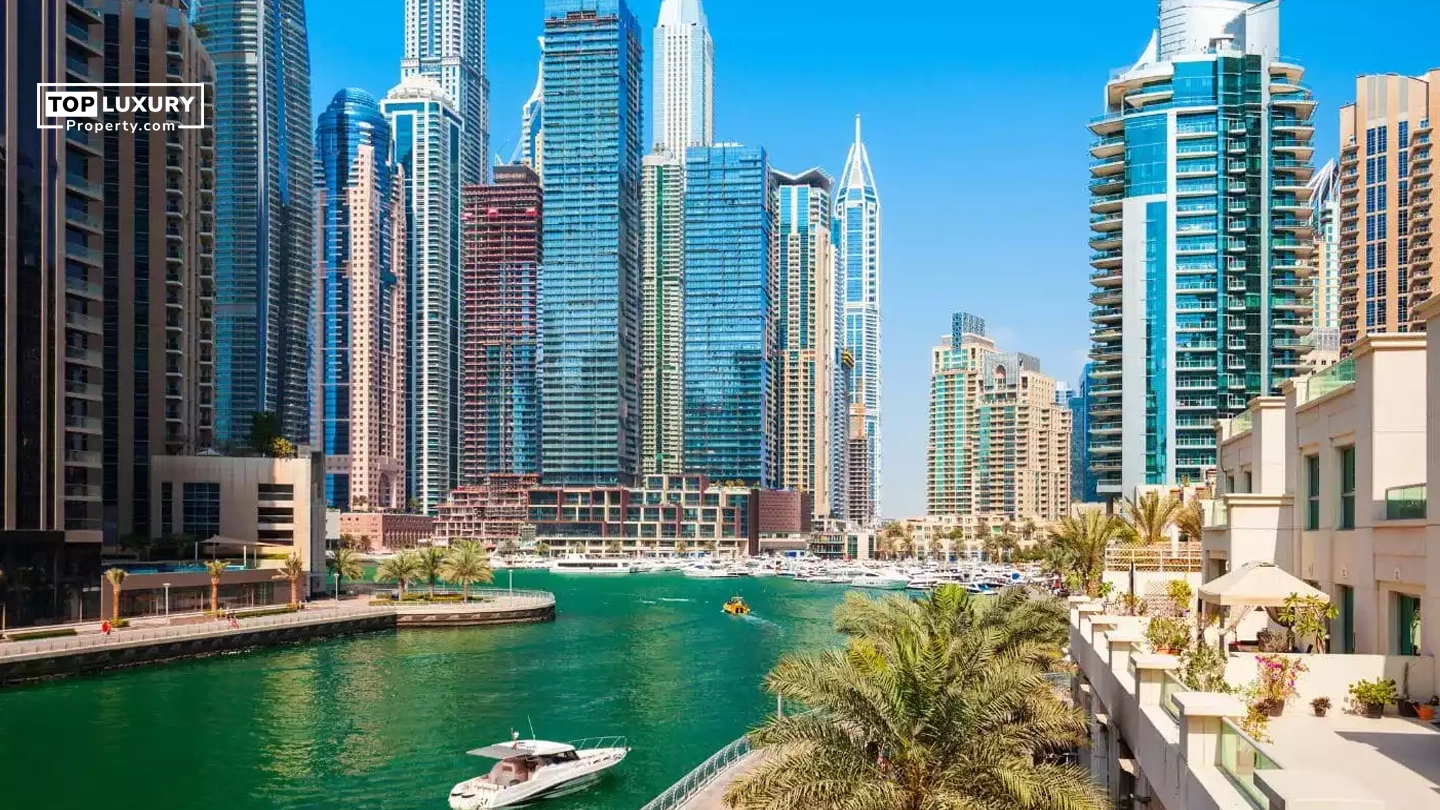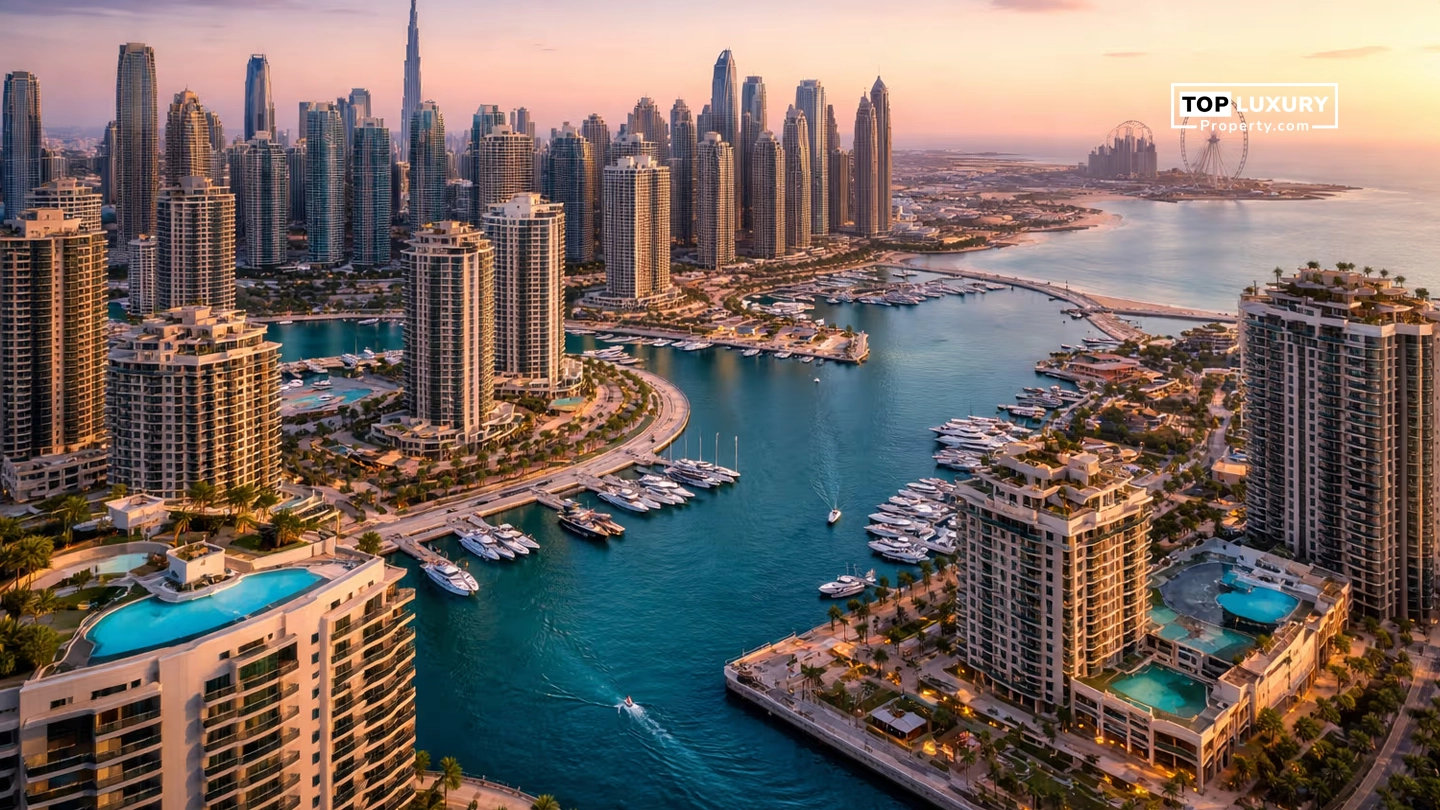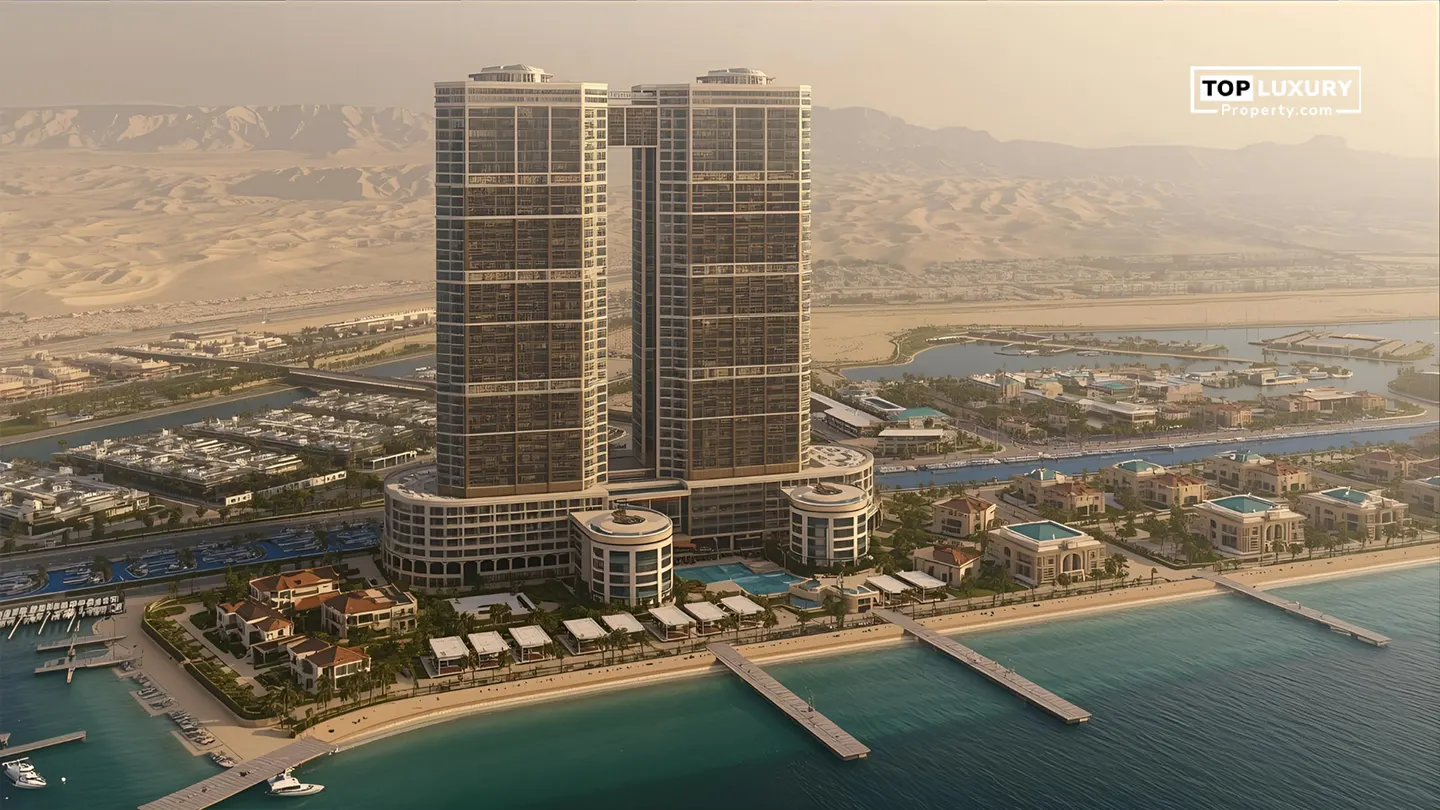Buying property in Dubai has become more and more popular. A healthy economy, business-loving atmosphere and ever-changing infrastructure make Dubai an appealing real estate market. More than that, off-plan properties have become evenly popular because they offer flexible payment plans, huge profits and the possibility of acquiring cheap property.
If you are considering buying an off-plan property in Dubai, it is crucial to understand the concept thoroughly and weigh the pros and cons. This comprehensive guide provides an in-depth look at off plan properties in Dubai
What are Off-Plan Properties in Dubai?
An off-plan property refers to a development in the planning or construction stage. It is marketed based on project plans, renderings, floor plans, et cetera. You can buy this property even before it is completed, and this can be at significantly lower prices. For off-plan purchases, you can pay full payment in instalments with the down payment and the remaining amount paid in proportion during construction.
When the project is done, you get the finished property per the agreement. These are among the most sought-after off plan projects in Dubai, which include units in emerging towns like Dubai Creek Harbour, Dubai Hills Estate, and Downtown Dubai , among others.
Now that you know what off-plan properties are, let’s look at the key benefits and risks of investing in off-plan properties in Dubai:
The Advantages of Investing in Off-Plan Properties in Dubai
Investing in off-plan properties in Dubai has several advantages that make it an attractive option for buyers and investors. Here are some of the top benefits:
1. Lower Purchase Costs
One of the main benefits of off-plan properties like Six Senses Residences Dubai Marina is their relatively low price compared to already completed units in the same area.
For example, a 2-bedroom apartment in Six Senses Residences in the desirable Dubai Marina location can be approximately 20-30% cheaper than a similar ready 2-bedroom unit.
This significant pricing advantage allows buyers to maximize their investment at Six Senses Residences. Purchasing off-plan provides buyers the opportunity to lock-in a property at today’s price in this prime freehold location.
2. Flexible Payment Plans
Most off-plan purchases require only a small upfront deposit, often between 10-20% of the property’s total cost. The remaining amount can be paid through flexible instalments stretched over the construction phase, making payments more affordable.
Many developers offer payment plans tailored to the buyer’s needs, with installments spread over 12 months to 3 years. This gives you time to arrange your finances rather than paying the total price upfront as required when buying ready units. For example, Suppose you are considering purchasing an apartment in Emaar Parkwood at Dubai Hills Estate. In that case, you will be pleased to know that here you can book a unit with a small upfront deposit. The remaining amount can be paid through flexible installments, allowing for more affordable payments.
3. Lower Mortgage Rates
Taking a mortgage loan for off-plan properties in Dubai tends to have lower interest rates compared to ready properties. This is because banks consider under-construction projects as progressive assets and reduce mortgage rates to incentivize buying. Lower EMIs can enhance affordability and reduce the overall interest outgo over the mortgage tenure.
4. Capital Appreciation
As previously mentioned, off-plan property values tend to appreciate as the project nears completion. The units are purchased at pre-construction rates, but their valuation moves with market trends. This presents an opportunity for good capital gains when you sell the property closer to possession or post-completion. Investors can book units in promising off-plan developments in emerging areas and later sell at a premium when the locality establishes itself.
This holds particularly true in Dubai, where new communities and infrastructure projects drive growth. One promising development is Damac Safa 3 at Safa Park. With its prime location and access to amenities, Damac Safa is well-positioned to appreciate value as the surrounding area develops.
5. High Rental Yields
The residential rental yields in Dubai range from 5-10% on average, depending on factors like location, developer, and amenities. Buying off-plan properties in Dubai allows investors to enjoy high rental returns while investing only a fraction of the property’s total cost during construction. Moreover, brand-new properties usually attract higher rents when they enter the rental market. You can expect good rental income from an off-plan purchase like Sobha The Pinnacle post-completion without paying the total price upfront
6. Buyer Protection
In Dubai, off-plan purchases are regulated by RERA (Real Estate Regulatory Authority), which has implemented stringent guidelines to protect buyer’s interests. These include:
Requiring developers to hold investors’ payments in an escrow account until the project achieves certain construction milestones. This prevents misuse of funds.
Mandating developers to provide post-handover warranties on construction quality and timely completion.
- Allowing for termination of contracts and refunds if the developer defaults on commitments.
Such measures ensure stable off-plan properties in the Dubai market. As a reputed developer in Dubai, DAMAC offers such kind of safety to its customers, and their new project, Damac Sun City, also gives you the same level of fund security.
7. Wider Selection
The Dubai property landscape is dotted with off-plan launches catering to all budgets and investment objectives. You can pick from upcoming projects by renowned boutique developers across popular areas like Downtown, Dubai Marina, Palm Jumeirah, Dubai Hills Estate, etc. Even a new development like Emaar Greenspoint allows buyers to be part of an upcoming community by Emaar in DubaiLand.
You also have the flexibility to select units per your preferences in off-plan properties like Emaar Greenspoint 2, Emaar Address Residences and Ellington Belgrove Residences. This choice level is often unavailable in the ready property.
And if you are looking for an off plan then recently DAMAC’s new project Damac Islands and Damac Safa Gate are gathering more attention from end-users, which you can consider for investment.
The Disadvantages of Buying Off-Plan Property in Dubai
Despite the many upsides, investing in off-plan properties in Dubai also comes with certain risks that must be evaluated beforehand. The key downsides include:
1. Risk of Delays
Project delays are quite common in Dubai’s off-plan market, which can adversely impact investor interests. Factors like shortage of materials, workforce or funds, approval delays, or external contingencies can push completion timelines ahead by months or even years in some cases.
Delays can frustrate buyers waiting to move into their new home at the promised date. It also restricts your ability to place the property on rental and start earning returns on your investment.
2. Limited Information
When buying off-plan properties in Dubai, investors must rely mainly on the information and visual representations the developer provides. You will not have access to view the actual unit or assess construction quality before purchase. The end product may not always match up to the expectations set by brochures and floor plans.
However, you can minimize this risk by researching the developer’s reputation and previous projects to gauge the likely finished product.
3. Sales Restrictions
Many developers impose sales restrictions on off-plan purchases until a certain number of installments are paid up. This prevents speculative buying with the intent of flipping contracts. While this protects developer interests, it can limit investors who intend to sell soon after booking for profit-taking.
4. Market Volatility
The Dubai property market is prone to periodic fluctuations, just like other real estate markets globally. When you purchase off-plan properties in Dubai, the final market value during handover remains uncertain.
If market dynamics shift negatively in the interim period, the property’s valuation may appreciate less than expected or even depreciate. This risk is amplified in off-plan purchases compared to ready units.
5. Mortgage Risks
Arranging home finance for off-plan purchases also carries some uncertainty. While you may qualify for a mortgage at the time of booking, your eligibility may change later. Interest rates or bank policies could be different at the time of the final payment.
Job loss or income instability during the tenure could also impact your mortgage application when the time comes. Some mitigation strategies include pre-approvals from banks or reserving part payments to cover the final amount.
6. Speculative Nature
Excessive speculative activity in off-plan sales, especially in emerging areas with limited infrastructure, can lead to an artificial inflation of property prices. If speculation outpaces actual demand once the project is completed, prices tend to correct downwards, resulting in buyer losses.
7. Developers Defaulting
While rare, there is always a possibility of the developer defaulting on the project leading to non-completion. This can be due to financial problems, lack of technical capacity, fraud, or other reasons. In such cases, investors could face difficulties recovering their payments.
Doing thorough due diligence on the developer’s reputation and track record can minimize the chances of default to a large extent. Checking for RERA registration and reading the fine print of payment plans and refund policies also helps.
Homework to Do Before Buying Off-Plan Property in Dubai
Once you understand the pros and cons, you can buy off-plan property in Dubai. But there are several important factors to consider:
Research the Developer Thoroughly
The developer’s reputation and track record should be thoroughly researched before choosing a off-plan property in Dubai. Established names like Emaar, Nakheel, Azizi, Alder and Dubai Properties have extensive experience and are unlikely to default. However, small developers can also deliver, provided they have a proven capability, substantial technical and financial resources, and a portfolio of successful projects.
Check for complaints, lawsuits, or penalties against the developer. Review previous projects they delivered, and visit one to view the quality first-hand. The developer’s responsiveness to customer queries can also give insights into their professionalism.
Evaluate the Location
The location and accessibility of an off-plan property in Dubai significantly influence its future value. Projects near business hubs or connectivity infrastructure like metro stations tend to see higher demand from tenants and buyers.
Upcoming areas like Dubai Creek Harbour along the historic creekside or Dubai Hills Estate next to Downtown and DIFC have strong potential despite limited infrastructure currently.
Also, assess the surrounding community and nearby amenities. Invest in locations that show promise of emerging into self-sufficient communities.
Study Payment Plans and Pricing
Scrutinize the payment plan closely to ensure adequate protection for your payments, and that construction-linked installment schedules are incorporated. The plan should have clear provisions for refund of deposits and installments if the developer breaches contract terms.
Also, compare pricing and payment terms across shortlisted off-plan projects against similar ready properties in the same locality. This will help you identify the right value proposition that aligns with your budgets and investment objectives.
Evaluate Financing Options
Explore mortgage and financing options for off-plan purchases from banks, considering associated fees and interest rates. Understand loan amount eligibility and documents required.
Also, clarify with the lender their policies around approvals post-handover, as this affects the disbursal of the final payment. Consider combining your own funds with a mortgage loan to enhance affordability while mitigating risks.
Conclusion
Buying off-plan properties in Dubai can have both positive and negative sides. However, off-plan properties in Dubai are usually cheaper than ready-made ones. This may also include the possibility of more flexible payment plans for those investing in off-plan properties in Dubai. Nevertheless, you should carry out an in-depth background check about a reliable developer who has a reputation for delivering quality projects.
If you are interested in exploring the off-plan property market in Dubai further, visit topluxuryproperty.com for more information and a wide range of off-plan properties to choose from. Don’t miss out on this exciting investment opportunity!






